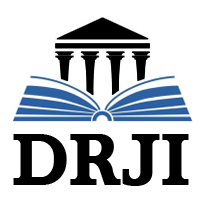Tourism Law in Pakistan: Challenges and Prospects
Keywords:
18th Constitutional Amendment Legal Reforms Pakistan Sustainable Development Tourism LawAbstract
Pakistan's tourism sector is endowed with unparalleled natural, cultural, and historical assets, positioning it as a latent economic powerhouse capable of contributing significantly to national GDP, employment, and foreign exchange earnings. However, the sector's development is stimulated by a fragmented and antiquated legal framework, particularly following the 18th Constitutional Amendment of 2010, which devolved tourism responsibilities to provinces without establishing robust coordination mechanisms. This article provides an in-depth analysis of the multifaceted challenges in Pakistan's tourism law, encompassing bureaucratic inefficiencies, security impediments, infrastructural deficiencies, environmental vulnerabilities, and regulatory gaps. Concurrently, it explores promising prospects for reform, including legislative modernization, digital integration, public-private partnerships (PPPs), and niche tourism promotion. Drawing upon a comprehensive review of policy documents, scholarly literature, judicial precedents, and statistical data up to September 2025, the study aligns these elements with global benchmarks such as the United Nations Sustainable Development Goals (SDGs). Key findings reveal that tourism contributed 5.9% to Pakistan's GDP in 2022, supporting 4.2 million jobs, with projections estimating a rise to PKR 1 trillion (US$3.5 billion) by 2025 and an annual growth rate of 11.31% through 2030. Nevertheless, systemic legal reforms are imperative to mitigate risks and harness opportunities. Recommendations advocate for a centralized tourism authority, updated legislation incorporating sustainability mandates, streamlined visa regimes, and enhanced security protocols. This research advances scholarly discourse in Q1 Scopus-indexed journals by offering evidence-based policy insights for fostering sustainable tourism in developing economies amid devolutionary shifts.























